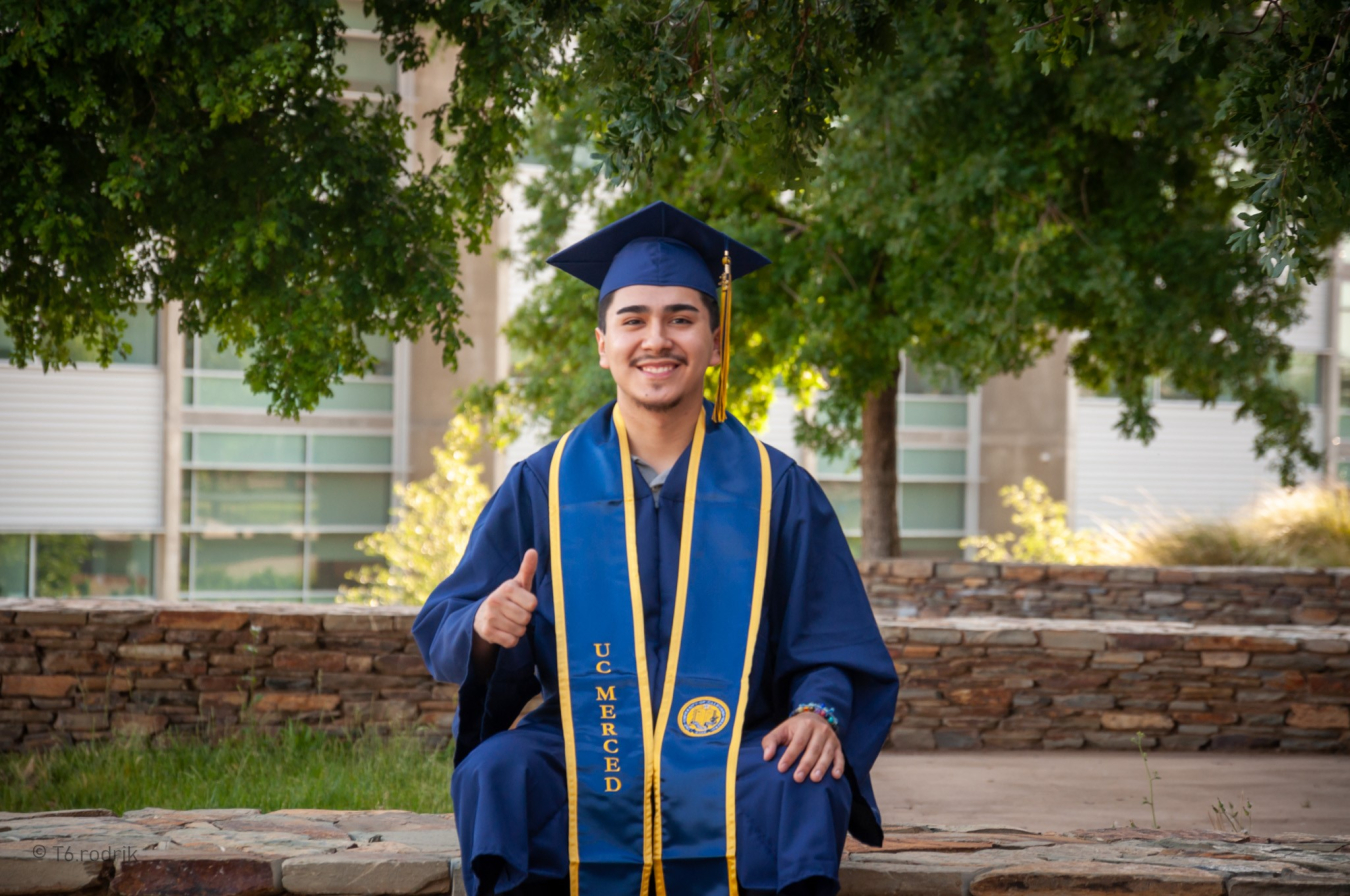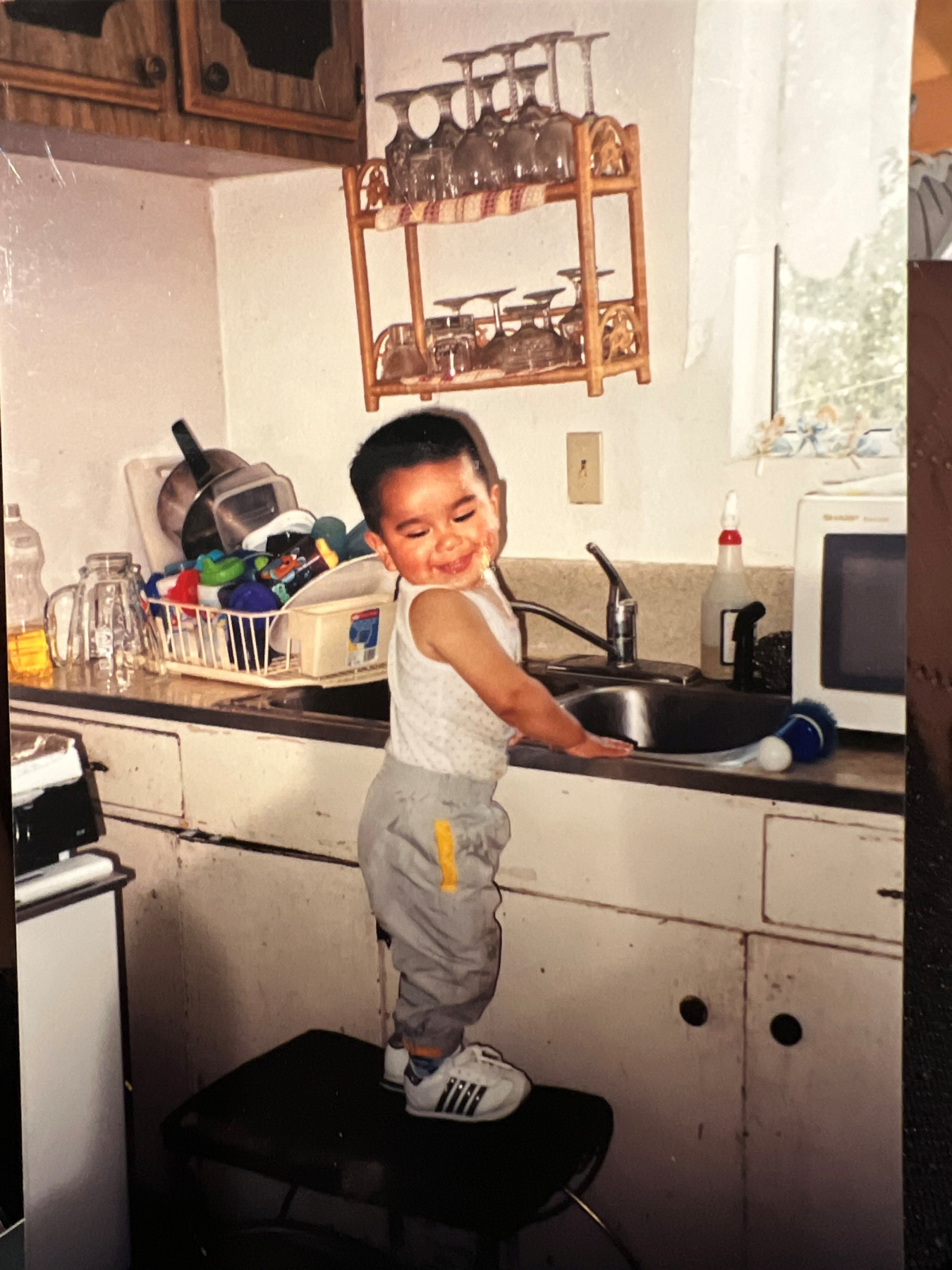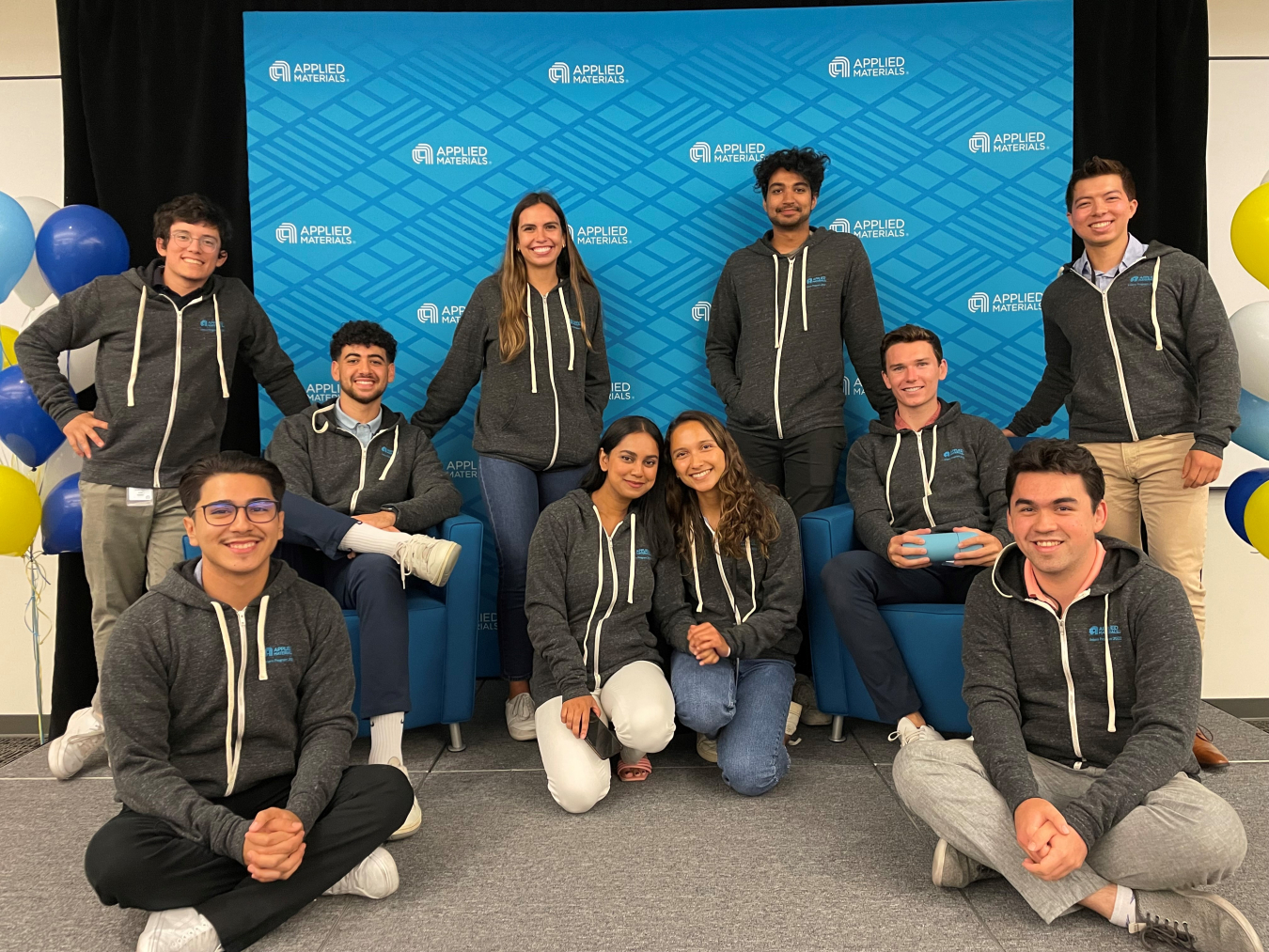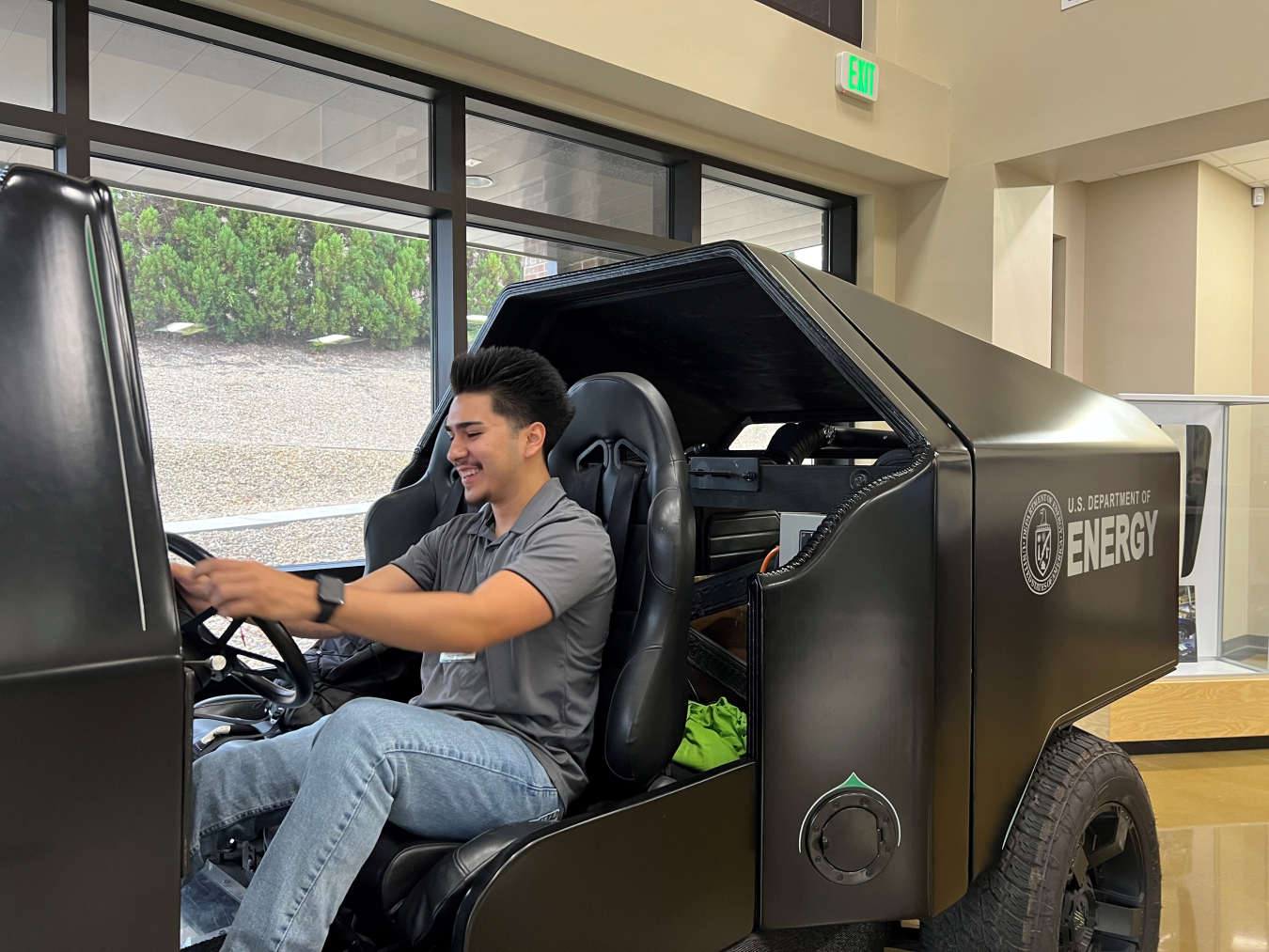Name: Francisco Aguirre; Institution: University of California; Program: Graduate Education for Minority Students (GEM) Fellowship and ORISE Fellowship; Education Level: Graduate Student
June 18, 2024Francisco Aguirre’s parents didn’t want him to be like them. Or, more specifically, they didn’t want him to work like them.
His father is an electrician (though, for many years, he juggled two jobs at once). And his mother cleans houses. The couple emigrated from Mexico to San Jose, California, in the 1990s. The last thing they wanted was for their kids to work their bodies instead of their brains.

In early 2024, Aguirre called his mom to share some good news. In just a few months, he would have a master's degree in hand. True to his word, this weekend, the 22-year-old graduated from the University of California, Irvine, with a master’s degree in mechanical and aerospace engineering.
“When I told my mom, she was about to start crying,” Aguirre said. “To my parents, I’m already a big success. I already made it. But it’s hard for me to wrap my mind around that because I feel like I'm just getting started.”
Aguirre hasn’t just been earning his master’s degree; he was first a Graduate Education for Minority Students (GEM) fellow and now an Oak Ridge Institute of Science and Technology (ORISE) fellow embedded in the U.S. Department of Energy (DOE) Advanced Materials and Manufacturing Technologies Office (AMMTO). And he has grand goals.

Francisco Aguirre’s parents wanted him to work with his brain, not his body, and they got their wish; in June 2024, the U.S. Department of Energy fellow earned his master’s degree in engineering and hopes to help decarbonize the country’s energy and manufacturing systems.
“I knew I wanted to do something with energy,” Aguirre said. “And not necessarily just energy but energy that would impact people.”
Take cars. At first, Aguirre envisioned a career in car manufacturing—but then, he discovered that manufacturing vehicles could mean “a million different things,” he said. He could build a more efficient motor, a lighter but tougher material for car windows, or a better, more sustainable way to store energy. At AMMTO, he gets a rare inside look at the latest ideas and advances in manufacturing and materials—and how they could not only help the automotive industry build more sustainable vehicles but also help the country move closer to its goal of decarbonizing all industries, including manufacturing.
“That fits with what I want to do—make an impact on people. That’s my cup of tea,” Aguirre said.
In this Q&A interview, Aguirre shared what it’s like to be a first-generation minority student, why he wants his work to have a positive impact on people’s lives, and what advice he’d give to students hoping to follow in his footsteps.
You just completed your studies in mechanical and aerospace engineering at the University of California, Irvine. Why did you end up pursuing graduate school in this field?
I’m the oldest of three siblings. My parents didn’t always know I’d go in this direction. But I was always good with numbers. My favorite subject was either math or science. I didn't know that I wanted to become an engineer. But I wanted to make things—and make things that would impact how people live their lives. So, what better way to do that than by focusing on energy, something that everybody uses?

Aguirre didn’t always know he’d end up an engineer, but he was sure about one thing: He wanted his work to have a positive impact on people. As an engineer working in energy, he plans to help people who struggle to access affordable energy options (like his family did when he was growing up).
Why do you think it’s so important to you that your work have a broader impact?
I grew up in a very Catholic, religious family. I was an altar server, one of those kids behind the priest, helping with whatever they needed. That experience helped me become aware that there are people in the world who need things and might not have access to the same resources as you do.
My dad also always told me to turn off the lights, the fan, or any TV that was not being watched to save money on the electricity bill. I feel a need to do something to help. Through my work, I seek to help families who struggle to find affordable energy options—and to help the people I hold dear in my life.
What has it been like, being a first-generation student?
I went to the University of California, Merced, for my undergraduate studies. They’re a Hispanic-serving institution where about 50% of the school is first-generation. So, a lot of my fellow undergrads looked like me. I've been going to a school where I was in the minority, and I felt the stares. Sometimes that feels uncomfortable. It’s easier to work hard when I feel comfortable and welcomed as myself. I just needed to adapt to it, and the adaptation took time.
Thankfully, I can adapt to any environment, but that wasn’t tested until I had to move to the East Coast completely alone. I didn’t know how much that would shape me, but I learned a lot about myself in those 10 weeks.

Aguirre (left, sitting cross-legged) barely completed his application for the GEM fellowship on time. His advice for anyone interested? “Just do it.” It was at the encouragement of fellow engineering company interns (pictured), some of whom were GEM fellows, that he applied.
Why did you decide to apply for a GEM fellowship?
Two summers ago, I was doing my first internship as a mechanical engineer at a semiconductor manufacturing company. One month, a group of nine interns started, and they were all GEM fellows. They told me I should apply. When I started my senior year of undergrad, I started filling out the application. But as soon as I got to the recommendations portion, I stopped. I hadn’t done research. I wasn’t involved in a research club. I felt like I didn’t have three professors who I could ask.
On the day the application was due, I got a phone call from a GEM representative. He said, “Hey, you have your application nearly filled out. Why don’t you complete it?” I told him I didn’t have three people to write letters of recommendation, and he said, “They just have to fill out a 3-minute survey.” That day, I had three lectures, so I asked each professor. And lo and behold, I got accepted!
What is it like to be sponsored by DOE? How have your GEM and ORISE fellowships impacted you?
During my 10 weeks in Washington, D.C., I learned how government funding works and how money flows for science. Like, this company developed a novel technology or process, but how much money did it take? I got a lot of exposure into what makes an application worthy of $10 million across six months.

As a first-generation student in the United States, Aguirre has often struggled with imposter syndrome. But “from day one, AMMTO really welcomed me,” Aguirre said of becoming a DOE fellow.
I started at DOE in summer 2023 as a GEM Fellow. Now, I’m an ORISE fellow. I joined a meeting one day, and somebody said to me, “Everybody’s so excited to have you for another year.” It was the first time that I was doing this kind of work, so that felt freaking great. I'm glad they're happy to have me. I'm happy to be here too!
From day one, AMMTO really welcomed me. Because I’m first generation, it was difficult to understand the position I was in. I was always so locked in on, “What’s next?” But once I gave myself the opportunity to acknowledge my accomplishments, I felt very proud to be part of AMMTO! Whenever I present myself to colleagues at school, I always feel super excited to let them know I’m a fellow with the Department of Energy.
In an ideal world, what would you most want to accomplish through your career?
I want to do work that will benefit my community. For the longest time, I wanted to work on cars. But once I started learning more, I understood that could mean a million different things. I could manufacture a more efficient motor or a more aerodynamic body. Or I could focus on windows or materials.
Once I got exposure to energy storage, I understood how that would be one step ahead in automotive engineering work. A lot of the work I oversee right now has to do with energy storage, mostly finding the optimal battery materials or advancements in manufacturing energy storage technologies.
What advice would you give to someone considering a fellowship?
I would say, “Just do it.” I wasn’t involved in university research or clubs until my last year of undergrad, so obviously, I thought I was underqualified compared to everybody else. But how you perceive yourself is not always how others perceive you, especially if you're a first-generation student. Once you obtain that fellowship, it’s still hard to feel confident in yourself. But I hope to transmit one clear message: “You deserve to be where you’re at.” That’s something I still tell myself every day.
Read more Making It! interviews from AMMTO’s fellows and consider applying! Catch up on articles like this as well as other news, events, and funding when you subscribe to The Manufacturing Moment, AMMTO’s monthly newsletter. Learn more about AMMTO’s work in next-generation manufacturing processes, like 3D printing and smart manufacturing.

